Benchmarks: AS SSD Benchmark

The AS SSD Benchmark sequential read results tell a different story to what was seen when testing with CrystalDiskMark. Here the Intel SSD 750 Series smashes the 2GB/s barrier, hitting 2.2GB/s and leaving the Samsung SM951 well behind. That said, the SM951 still managed to reach 1.9GB/s while the G.Skill Phoenix Blade topped out at just over 1.7GB/s.
The Kingston Predator delivered the same sequential read performance in AS SSD Benchmark as it did when testing with CrystalDiskMark. This was also true for the Plextor PX-G512M6e and the SATA SSDs.
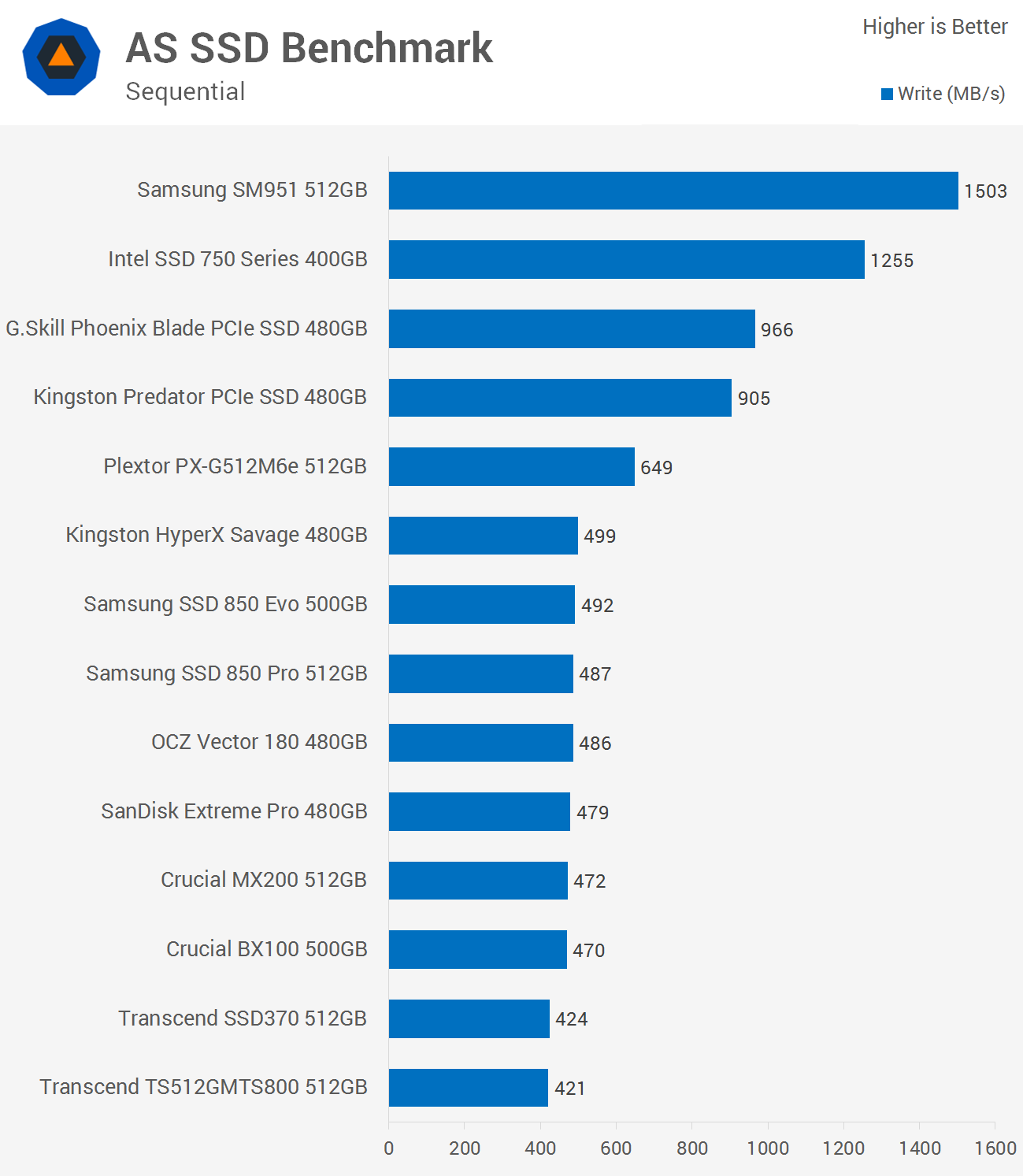
Despite the huge performance variation between AS SSD Benchmark and CrystalDiskMark when measuring sequential read performance the write results seem to align.
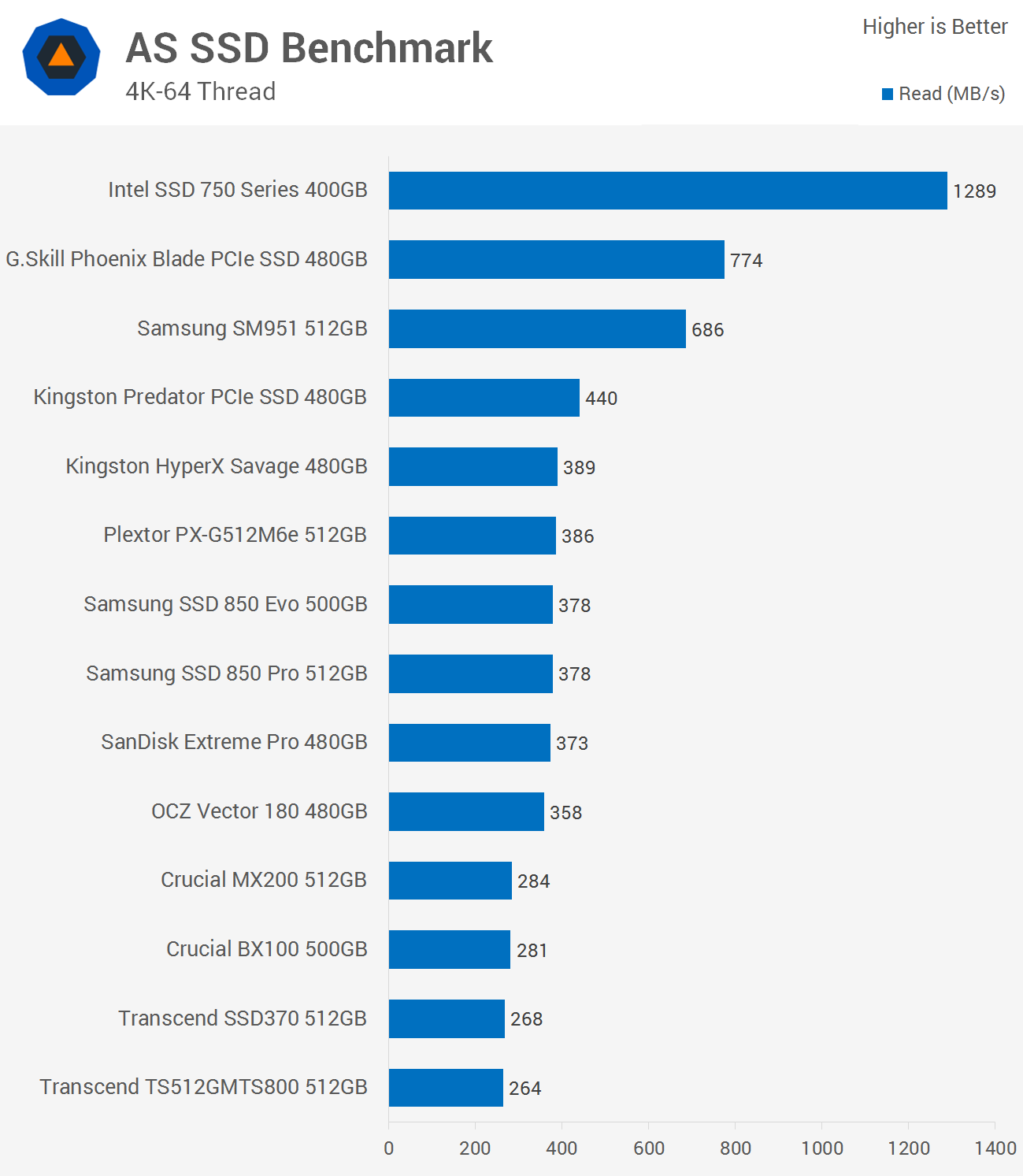
Due to the Intel SSD 750 Series support for NVMe, it can't be beaten in the 4K-64 thread test delivering a whopping 1.28GB/s. In comparison, the Samsung SM951 reached just 686MB/s though the G.Skill Phoenix Blade did quite well reaching 774MB/s.
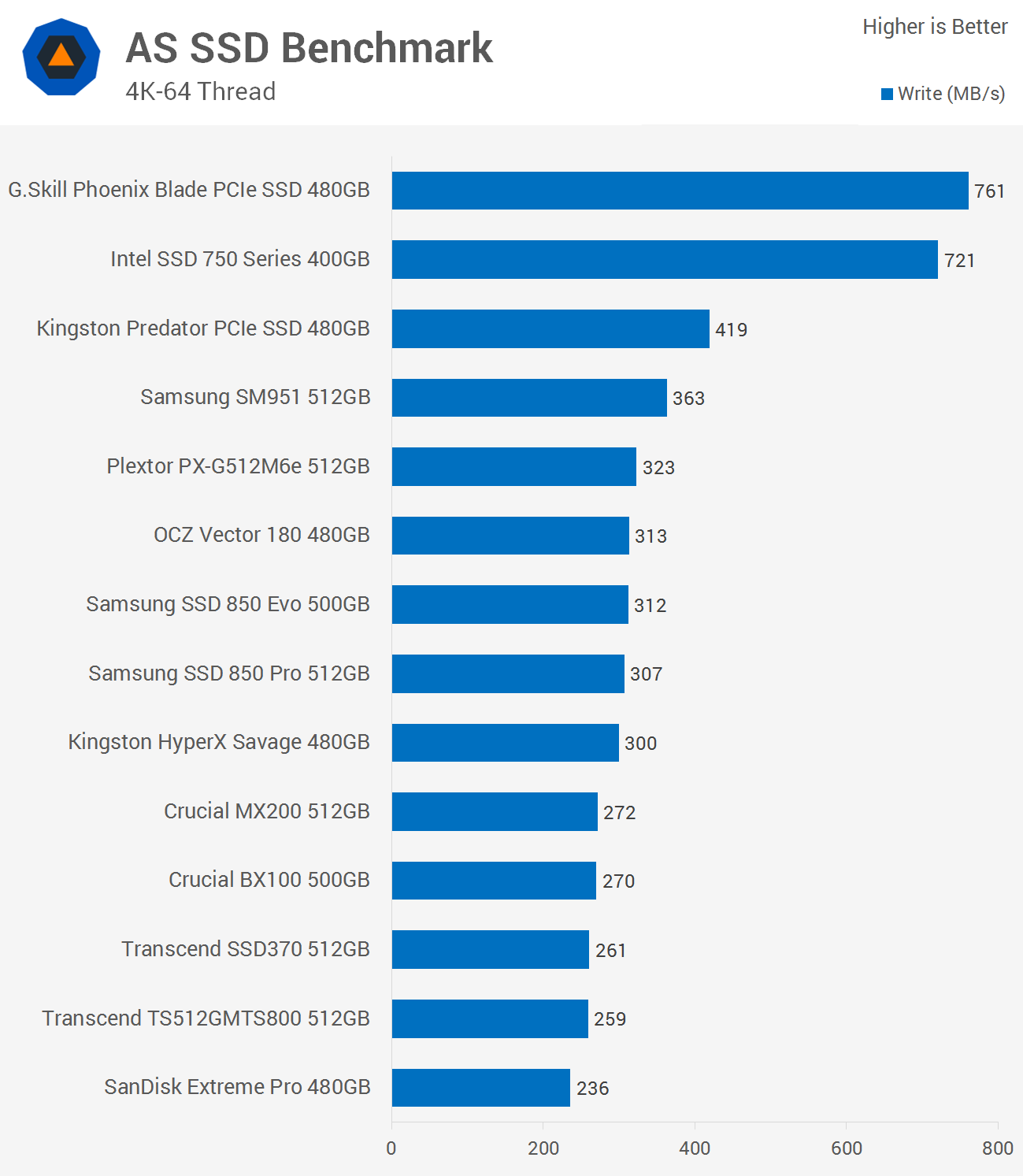
The 4K-64 thread write performance was much more competitive and here the G.Skill Phoenix Blade PCIe SSD came out on top narrowly defeating the Intel SSD 750 Series. Here you will notice that the Samsung SM951 doesn't offer much of a performance advantage over the SATA SSDs.
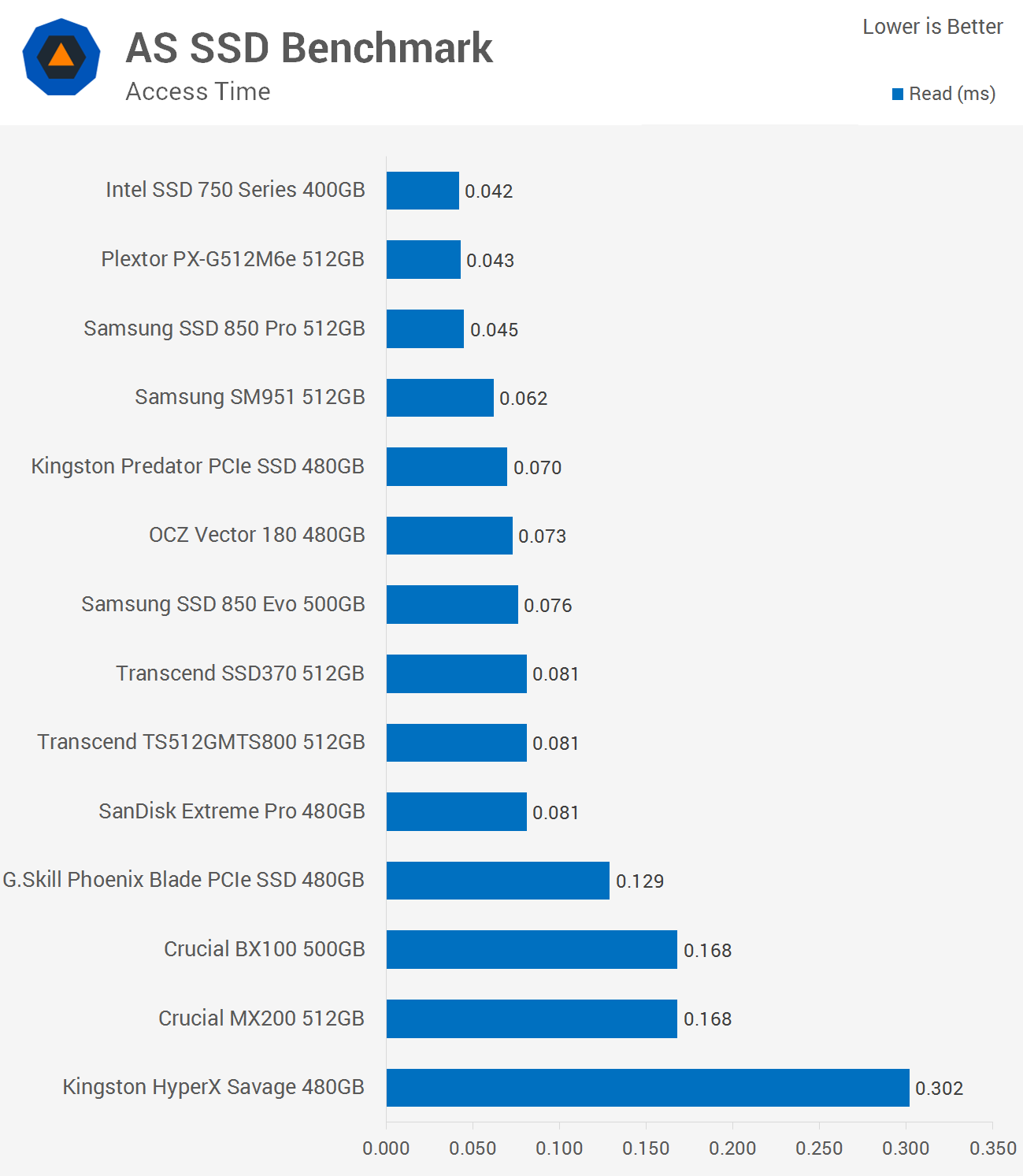
The Intel SSD 750 Series features the best read access time though the results are comparable with the Plextor PX-G512M6e and Samsung SSD 850 Pro. The only SSDs to really deliver weak results here included the G.Skill Phoenix Blade, Crucial MX200, BX100 and Kingston HyperX Savage. The Kingston HyperX Savage was particularly bad and 0.302ms is the worst access time we recall seeing for an SSD.
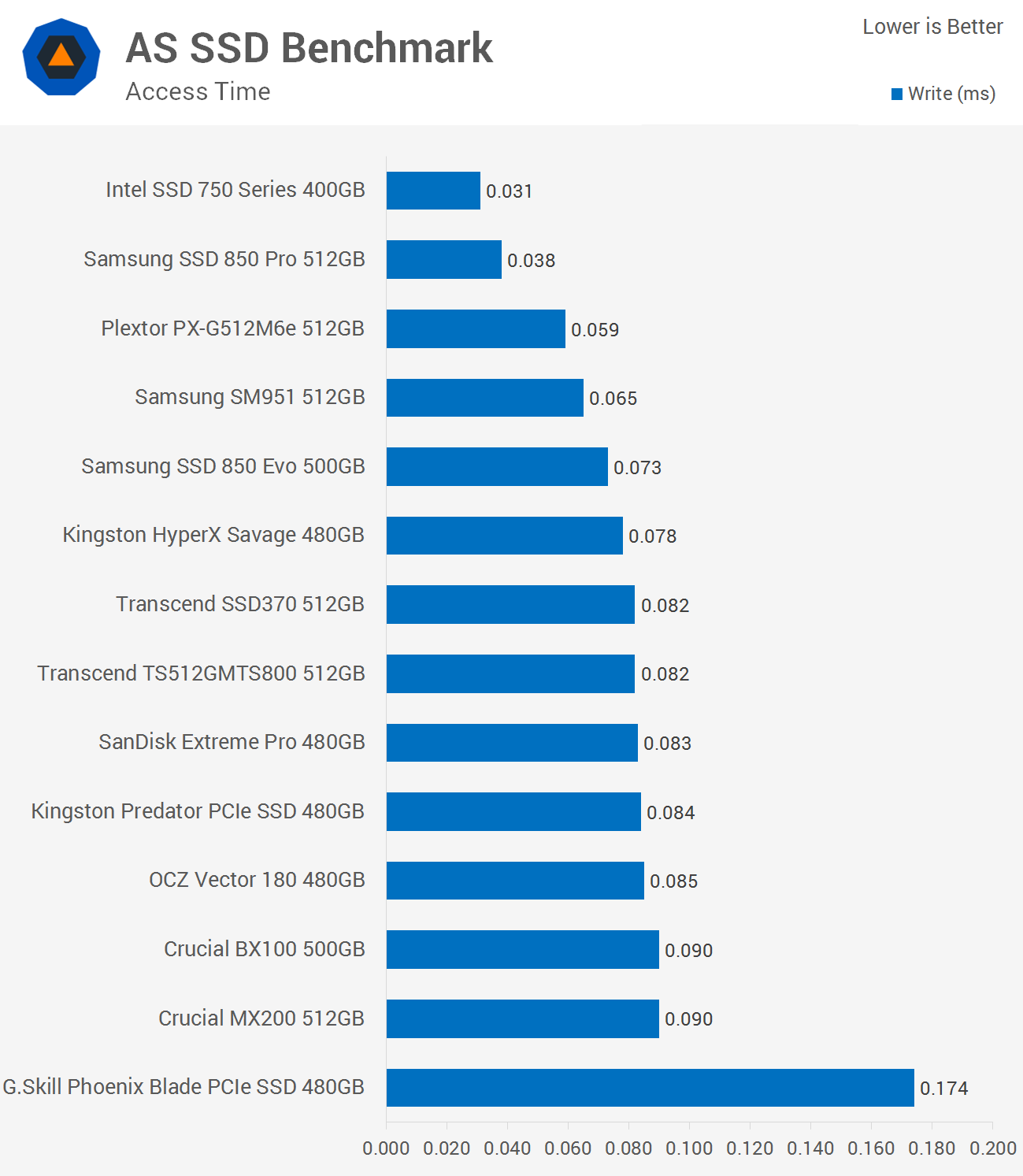
Despite the terrible read access time performance the Kingston HyperX Savage was rather snappy when measuring write access time. Still it was the Intel SSD 750 Series that dominated here followed by the Samsung SSD 850 Pro.
